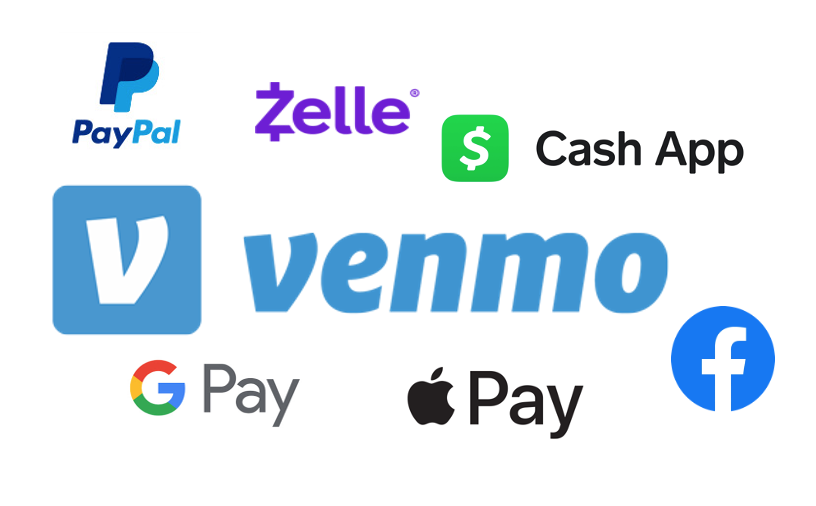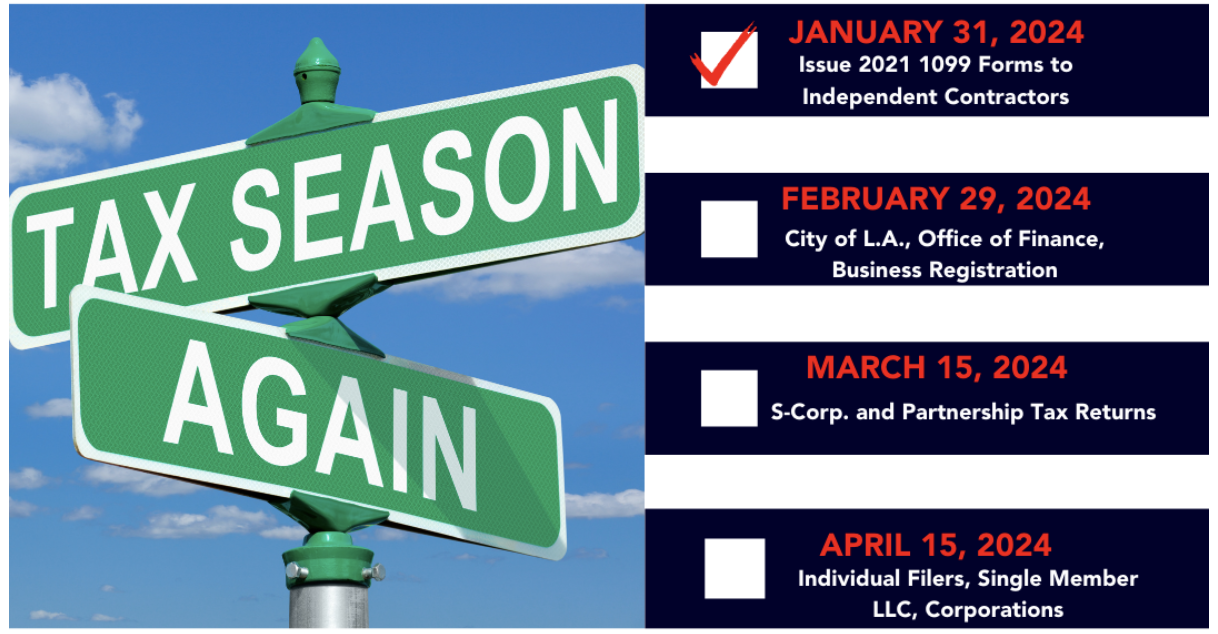2024 Tax Update: Third-Party Payment Platforms and 1099-K Forms
January 30th, 2024
As you may have heard, there have been some proposed changes to the tax reporting requirements for the use of third-party payment platforms, such as credit card processors, PayPal, Venmo, Cash App, Etsy, Stripe, Ebay, Amazon, VRBO, AirBnB, and other sites. As part of the American Rescue Plan Act of 2021, the Biden Administration has made some changes to increase efforts of financial regulation over the next decade. For 2023, the requirement to report these transactions on P2P (Peer-to-Peer) platforms will only apply to those who had at least 200 transactions and a minimum of $20,000 in transactions. Starting in 2024, you will receive reports for any third-party payments received $5000 or over. This will be the first step to phase in the eventual $600 threshold for the 1099-K filing requirement. At this point, Zelle is not included in the reporting requirement as it is a bank-to-bank wire transfer.
Third-Party Payment Platforms Will Be Issuing 1099-K Forms

If you are a business owner or independent contractor, you may be familiar with issuing or receiving Form 1099-MISC, which is also required to be filed for goods or services over $600. The reason this new requirement has been put into motion is to account for the millions of people who have been using sites like Venmo to pay people for services without reporting them.
Remember that the fact that you do not receive a 1099 does not exempt you from claiming that income. To lower your taxable income, It is best to report all earned income and to be proactive with the write-offs of your business expenses.
The latest reporting legislation, which will be implemented gradually over the coming years was intended to lower the tax gap between what people owe in taxes versus what they end up paying. The Joint Committee on Taxation from the United States Congress states that this measure could bring in approximately $8.4 billion in tax revenue from 2021-2031.
IMPORTANT REMINDER:

The City of L.A., Office of Finance, Annual Business Registration is due by February 29th, 2024. You may be penalized for non-compliance, even though you would have otherwise been eligible for an exemption. You must comply with the City of Los Angeles, Office of Finance annual Business Registration by 02/29/24 if you are doing business in Los Angeles as an independent contractor, self-employed, freelancer, sole proprietor, small business owner, partnership, fictitious business name (dba), loan-out co., LLC, or S-Corp. You may qualify for a small business exemption from city taxes if you generated up to $100,000 of 2023 gross income or up to $300,000 as a creative artist. However, these exemptions are only valid with timely filings. You may be penalized by the city for non-compliance, even though you would have otherwise been eligible for an exemption.
Because the filing deadline falls before most of our clients’ income tax filing appointments, it is your responsibility to comply with the registration but call us if you need help complying. Visit our website, www.taxplus.com under the Resources tab where you will find several links to the City of Los Angeles, Office of Finance, including Tax Education, Is Your Business in the City of Los Angeles, Is Your Business Registered, Online Registration and Online Business Tax Renewal.
City of San Diego Business Tax
The City of San Diego issues a “Business Tax Certificate” in lieu of a business license. To obtain a certificate, you must apply for a Business Tax Certificate via online, in person, or by mail. Per sandiego.gov, it takes up to two weeks to receive a receipt of your business tax certificate.
To apply and keep your certificate active, there is an annual fee due to the city of San Diego, which is based on the number of employees your business has. For businesses with 12 or fewer employees, the annual rate is $34.00 (with an additional $4 state-mandated fee), and businesses with 13 or more employees have an annual rate of $125.00 plus $5.00 per employee.
The city tax application must be submitted within 15 days of the business start date. Businesses that fail to pay within this time frame are subject to a late fee of $25.00 or10% of the amount owed, whichever is greater. There are also surcharges that apply for businesses that are found operating in the City of San Diego but have not paid the Business Tax.
If you have any questions: please refer to the FAQ’s on the city website:
https://www.sandiego.gov/treasurer/taxesfees/btax/btaxfaq
To apply OR renew your City of San Diego Business Tax Certificate, please click on the following link:
https://www.sandiego.gov/treasurer/taxesfees/btax/btaxhow
